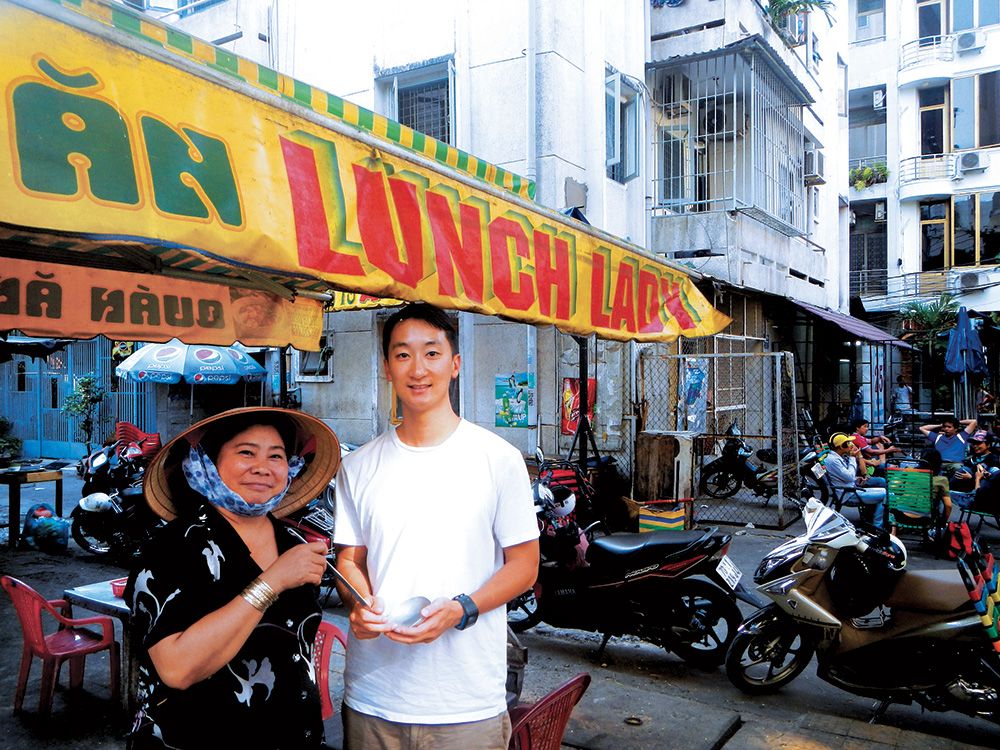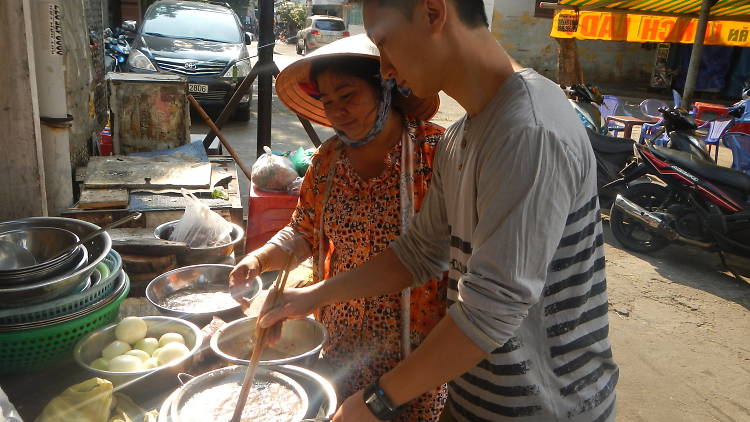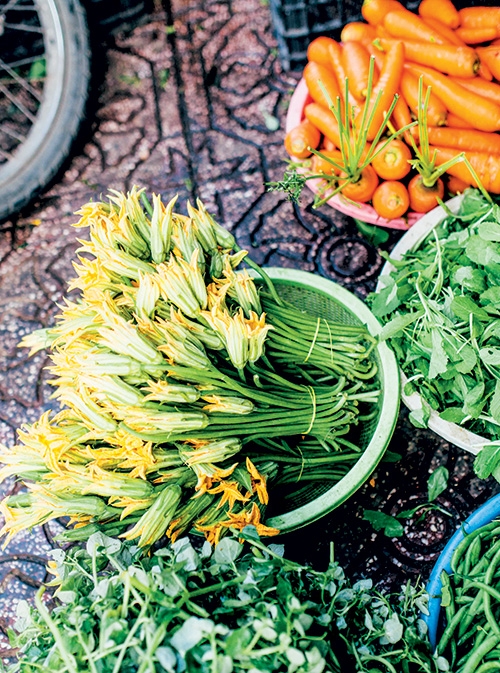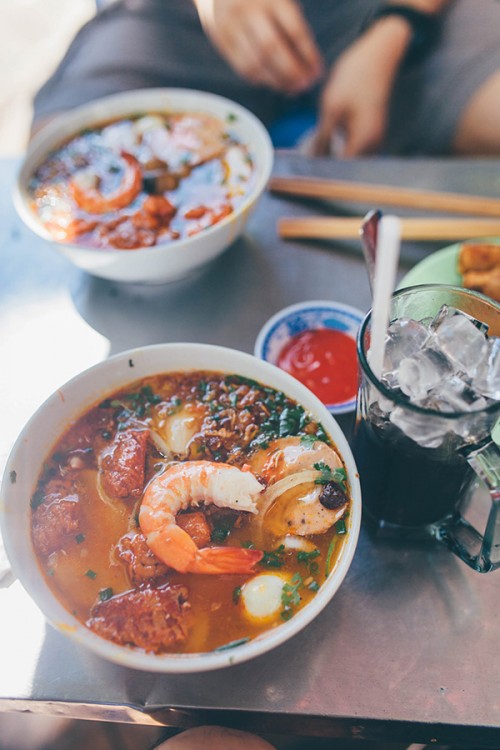Restaurateur Brian Woo speaks out on making it in the industry, how he’s coped with the COVID-19 crisis and more

A few minutes every morning is all you need.
Stay up to date on the world's Headlines and Human Stories. It's fun, it's factual, it's fluff-free.
Brian Woo owns three restaurants in Hong Kong including Cô Thành in Kau U Fong, Central and Return of Lemak as well as a second branch of Cô Thành, both located in the newly-opened Basehall.
Woo is the son of Hong Konger immigrant parents. He was born and raised in Minnesota and moved back to Hong Kong at the age of 13. While in Minnesota, his parents owned a small takeaway restaurant called Chinese Express. Growing up, he watched his grandmother cook. Although he claims he isn’t a good cook himself, he says this may have subconsciously influenced his interests in gastronomy and even drawn him into the food industry.
Having studied Interpersonal Communications at The University of Southern California in Los Angeles, Woo didn’t always know where he would end up. After university, he and his friend started an artist management company. They had a solid clientele of Asian American artists looking to perform and tour. As most of his clients performed around Asia, his career eventually brought him back to Hong Kong.
Woo’s friend and business partner decided to leave their company, moving back to New York to start his own family. Lost and confused, Woo didn’t let that diminish his can-do attitude. He decided to stay in Hong Kong and continue his artist management business, producing music and working closely with major artists.
Slowly, the business reached its capacity, and Woo struggled to find other clients. With newfound time on his hands, he set out on a new business venture – his very first restaurant called Three Monkeys, which was an authentic Japanese restaurant located in the heart of Central on Hollywood Road.
However, his first undertaking in the restaurant industry is only scratching the surface of his journey and love of gastronomy.
In 2013, six months into opening up Three Monkeys, the restaurant started to run itself. Woo found himself with spare time once again, so he set off to Vietnam for three weeks. Initially, he intended to traverse through different places throughout Vietnam. But once Woo arrived, he found himself so intrigued with Ho Chi Minh City and its food that he decided to spend his whole trip exploring everything the city’s restaurants had to offer.
Only ever having tasted typical Vietnamese dishes, like Pho and Banh Mi, a naive Woo set off to receive firsthand experience into the cuisine. He had heard of a popular alleyway vendor that offered different kinds of broths daily. This famed spot was owned and operated by Ms. Nguyen Thi Thanh, better known as “The Lunch Lady.”
He recalls visiting her little space everyday for lunch while he was there. “For most people, specifically tourists, they maybe will go once or twice,” he says. “But I was going everyday for three weeks, so she was probably like ‘Wow, who’s this weirdo?’”

In awe of The Lunch Lady and her food, Woo asked whether she would be interested in teaching people, but she was hesitant. He didn’t let that dissuade him, and instead he went on to be mentored by someone else – a grandmother who taught him how to make her different soups. He even went to the university and hired a student to be his translator.
Woo would still visit The Lunch Lady for his daily meals throughout his trip – he took the soups he made and asked for her feedback. The Lunch Lady, who was able to see that Woo was dedicated and genuine, asked if he was still interested in learning from her. Ecstatic and filled with joy, Woo extended his trip and booked his tickets to Vietnam again the next month so he could become her apprentice.
“For three years, it was just back and forth of going to Vietnam almost every month.” Woo says.
The Lunch Lady was already pretty famous in Vietnam, but she gained international popularity when American celebrity chef, Anthony Bourdain, visited her stall and added her to his list of favorite vendors from around the world that would be included in his highly-anticipated food hall in New York City.
Woo called The Lunch Lady – “You’re gonna go to New York!” he recalls saying on his call with the famed vendor. Overjoyed and nervous, she said, “No way, I have a family, my little stall, I don’t speak the language, I don’t have a visa – but you should go, go on my behalf,” he recalls her saying.
Obviously, no one would say no to an opportunity like that. “So, I reached out to the Bourdain team. But what eventually happened was it got from originally being in 2017, to 2018 and then 2019,” Woo says. He figured he had a lot of time before it actually happened, but the food hall ended up being canceled.
While waiting for the opportunity to go to New York, Woo, with no initial intention of opening up a restaurant, decided to open up Cô Thành in 2017. He named the restaurant after his mentor and the woman he calls his “Vietnamese mother,” The Lunch Lady. “Cô” which means Miss/Madame in Vietnamese and “Thành,” The Lunch Lady’s surname.
The Gist Of The Business
To begin with, Woo was hesitant to include mainstream Vietnamese dishes like Pho in his restaurant’s menu because he felt they would draw attention away from other, more authentic Vietnamese dishes. He also mentioned the struggle to find genuine ingredients needed to create authentic Vietnamese dishes in Hong Kong. “You can walk into wet markets and find Thai or Indonesian ingredients, but not so much of Vietnamese,” he explains.

Woo has made plenty of valuable connections within the industry. He bonded with Barry Quek – owner of Beat in Kau U Fong Street, neighboring the first branch of Cô Thành. Unfortunately, Beat closed in April due to the ongoing protests and pandemic in Hong Kong.
When Basehall reached out to Woo to open up a second branch of Cô Thành, he had the idea of opening up Return of Lemak, which consists of a fusion of Singaporean and Malaysian street foods, and bringing on Barry and most of the Beat restaurant staff. The restaurant’s name is a reference to the iconic 90s song, “Return of The Mack.”
Woo’s favorite dish at Return of Lemak is Nasi Lemak. He briefly lived in Kuala Lumpur, Malaysia, and he remembers it being his favorite dish. So, he decided to recreate it in his restaurant so people in Hong Kong could experience it and love it as much as he does.

Both Cô Thành and Return of Lemak opened in June amid the ongoing COVID-19 pandemic. When asked how he coped with the unfortunate timing, Woo says, “We were blessed to have opened in June in between waves, so we were doing pretty well.”
However, in the beginning and since the ongoing third wave in Hong Kong, Woo faced his fair share of hardships. “We had to close temporarily to do our part in flattening the curve,” he says. He also reveals that due to closing temporarily, they lost staff who couldn’t afford to wait around and instead needed to find new jobs. As a result, Cô Thành in Kau U Fong street had to remain closed longer than anticipated due to the lack of resources.
Food supply chains have also been affected by the pandemic. The restaurant’s ingredients, which are shipped from Vietnam, were delayed by three weeks, causing menu changes.
In order to keep up with the city’s social distancing and antivirus measures, Woo explains that apart from the regular enforcements – such as temperature checking and sanitizing – he’s making use of eco-friendly and biodegradable cutlery and containers for both dine in and take-away. He’s also using touchless, online menus at all his restaurants to minimize contact.
In spite of it all, Woo has stayed confident and optimistic. “One of my mentors, a professor that taught me in university, one of the things that he always told me was to eliminate the word ‘try’ from my vocabulary,” he says. “Don’t say ‘I’m trying to,’ say ‘I’m doing it.’”
“Create your own opportunities, don’t just wait for them to be handed out to you,” he adds.
“When you hear these stories, you hear the successes, you don’t hear about all the struggles and all the challenges that got you to this point, nobody likes to talk about it. But I can talk just as long as, if not even more, about the difficulties and the struggles that I’ve had building all these things and all the challenges I’ve gone through.”
Have a tip or story? Get in touch with our reporters at tips@themilsource.com




Comments ()